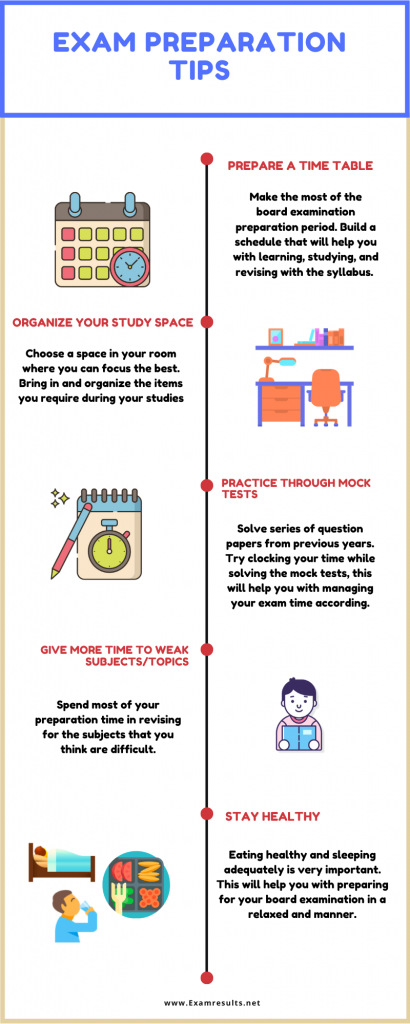Students should know some of the best ways to study for their exams. Because each student’s learning capacities are unique, we are unable to determine when each student should begin studying for the tests. There is, however, a standard technique to exam preparation that must be followed. Those who have not yet finished or begun revising the entire curriculum might begin now to avoid disappointment when test results are released. It’s nearly hard to achieve your goal without appropriate planning.
As a result, in order to prepare effectively for the upcoming CBSE board exams, each student must first create a proper study time calendar and then make it a habit to keep to it. Every student should set aside some time after school or coaching lessons to devote entirely to self-study in order to analyse and practise the concepts learnt in class or coaching.
You must set aside enough time so that you can meet some predetermined study goals.
To do well on board exams, each student needs to develop some key study habits that will enable them to join the ranks of the top scorers. Creating and sticking to a study schedule, being punctual and disciplined, and balancing academic and personal life are some of the positive skills and habits that a student should develop. Online teaching India should be done with the help of the best online apps.
It’s understandable for pupils to feel anxious when learning long responses because absorbing a large amount of information is never simple. To overcome their fear of memorising long answers, students must devise a long-answer strategy that includes breaking them down into paragraphs, putting them on paper, and linking them to real-life scenarios in order to retain them in the brain for a long time. The board releases CBSE sample papers for all topics for classes 10 and 12 a few months before the start of board exams.
Teachers recommend that you begin your exam preparations by practising with CBSE sample papers. They also advise students to review the board’s marking systems in order to understand how their responses will be assessed in board exams. Avoid studying for long periods of time. Instead, take 50-60 minute intervals at regular intervals. These breaks are critical for recharging your batteries and relaxing your mind in preparation for the next study session. All the teachers should know the ERP meaning.
Fear, anxiety, and tension will only impede your preparations and, as a result, impact your board test results. So, instead of tensing up, begin studying for the exam with a calm mind. You only need to put in your best efforts, and the end result will be the best. Now that you’ve worked hard to prepare for the board exam, it’s time for your answer sheet to represent your efforts.
To write the finest answers and complete the exam on time, you must use the appropriate approaches and strategies. Before starting the exam, take advantage of the 15 minutes allotted for reading. Planning how and what a student will study is the most important thing a student can do. A study plan not only helps students prepare for exams, but it also motivates them to attain their goals.
Before making a study plan, students should figure out when they are most productive and devote that time to completing the most difficult or difficult topics. It will help them absorb and retain information. They should also set goals that are realistic and reachable. It will not only improve their concentration, but it will also encourage them to study, giving them a sense of accomplishment and boosting their self-esteem.
With just over a month until the deadline, the focus should be on editing high-weighted chapters and major ideas. On standardised tests, students who are well-versed in these chapters would perform better. If students have any doubts, they should approach their teachers as soon as possible to have all of their inquiries answered. While preparation, they can categorise the chapters as difficult, moderate, or easy and split their time accordingly.
Chapters that are difficult and require extra revision and practice should be given more time. The CBSE Board Exams’ syllabus is entirely based on the NCERT texts. A thorough examination of the NCERT textbooks is thus essential, as each line of the book contains crucial information. Students should also pay close attention to in-text and practise questions.

